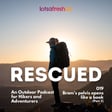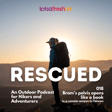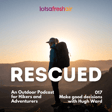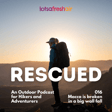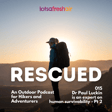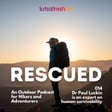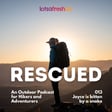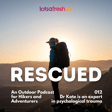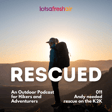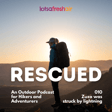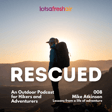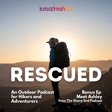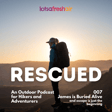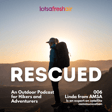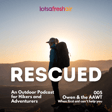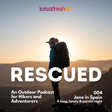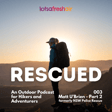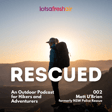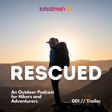
009 // Hilary's XC ski boot was facing backwards
At just under 2000m, Mt Bogong is the highest peak in Victoria. It looms over the small township of Mount Beauty, not too far from Falls Creek, and is a classic multiday trip for bushwalkers - who don’t mind over 1200 metres of vertical ascent - or in snow - for keen backcountry skiers.
Sitting within what’s called the “Bogong Remote and Natural Area” of the Alpine National Park, it’s a place of great natural beauty, whatever the season, and for the well-prepared adventurer, a place of exceptional wildness and epic tales.
In this episode, experienced outdoorsy type, Hilary, takes us along on her journey snow camping and cross-country skiing, when her skis stopped moving forward… but her body kept going.
Download the transcript here.
Episode takeaways:
- Importance of wearing a helmet skiing/snowboarding
- Adventuring with a group verus solo
- The importance of knowing how to manage environmental dangers (eg. cold) during first aid emergencies, how to warm someone up and keep them warm… and having the equipment to do so.
- The value of thoughtful planning and communication between those doing first aid and the patient
- The challenge of lifting/carrying a patient
- Hmmmm, fruit cake
- The trauma/stress experienced by first aiders - being able to look after themselves too
- The power of the green whistle https://en.wikipedia.org/wiki/Methoxyflurane
- The value of leaving keys with the car
- Realising that AU’s Medicare doesn’t cover ambulance or helicopter rescue. It’s different in each state so you need to do the research for your situation.
- Why having ambulance cover is essential
- Understanding what ‘back to normal’ can for outdoorsy folk vs ‘normal’ folk
- Understanding that wellness is a process and being realistic about what that means and being kind to yourself
- Injuries don’t just affect our physical body
Glossary
- Chook-footing = cross-country skiing (xc) or back-country
- Post holing = when you step on what you think is firm snow, but sink deep up to the knee or even higher. Exhausting over distance.
- Yard sale = when a skier or snowboarder crashes hard and all their gear goes everywhere. Skiis, poles, backpack. It looks like a yard (Aussie = garage) sale.
- AAWT = Australian Alps Walking Track
- DIN settings = is set on your ski bindings based on your skiing ability, weight, height, boot and conditions. It is the industry-adopted scale that allows your skis to release your boot when you crash (good, causing a yard sale) versus not releasing your ski which can exert extreme pressure and wonky angles on your body (bad).
